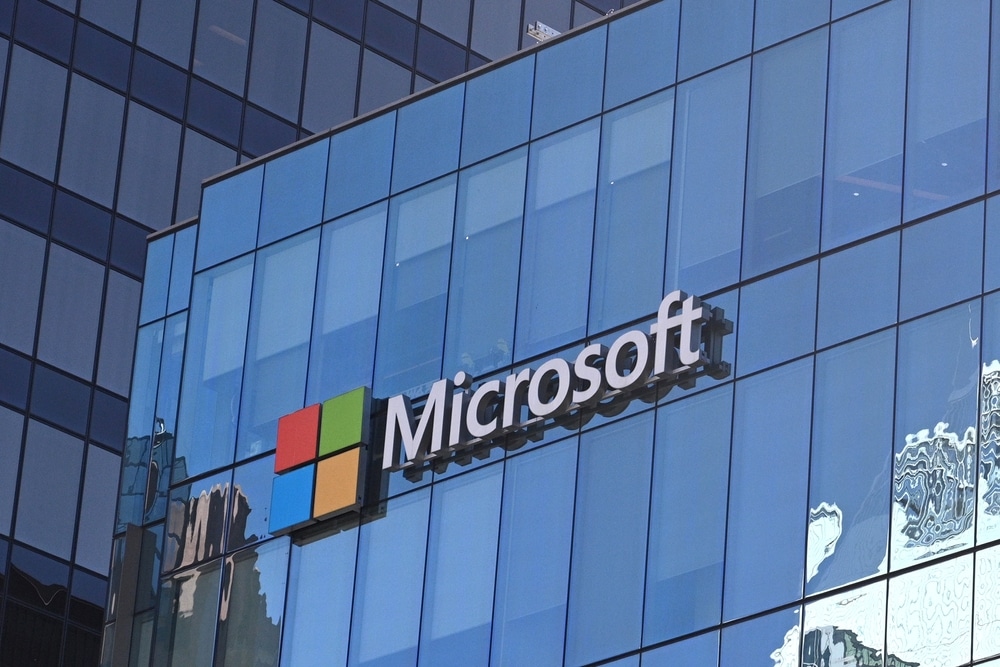Key Insights
- Microsoft’s Azure AI Foundry simplifies AI model switching, helping businesses adapt quickly to evolving technologies.
- New Microsoft security and data chips enhance AI model performance and data protection for cloud services.
- AI-powered updates in Microsoft 365 and Teams streamline workflows, automate tasks, and improve multilingual communication.
Microsoft has unveiled Azure AI Foundry, a new suite of tools aimed at streamlining the development and deployment of artificial intelligence applications.
Meanwhile, this move is part of the company’s broader strategy to expand its generative AI offerings and boost revenue from its cloud services. The announcement was made during Microsoft’s annual Ignite conference in Chicago.
Azure AI Foundry will allow developers to seamlessly switch between different AI models, including those from OpenAI, Mistral, and Meta Platforms Inc. According to Scott Guthrie, Microsoft’s cloud computing chief, this flexibility will enable businesses to select the most suitable models for their specific use cases without the need to reconfigure applications every time a new model is released. The tool also helps businesses monitor performance and ensure a favorable return on investment.
Tools to Enhance AI Agent Deployment
In addition to simplifying model integration, Azure AI Foundry includes features designed to support the deployment of AI agents, which are semi-autonomous assistants capable of executing tasks on behalf of users. Some of these functionalities were carried over from Microsoft’s previous Azure AI Studio platform, while others are entirely new.
The introduction of these tools is intended to provide businesses with more confidence in adopting AI technology. Guthrie explained that the ability to test and switch between different models without risk is crucial for companies running mission-critical applications.
“If you’re a business that has got a mission-critical application, you don’t want to just flip a switch and hope it works,” he said.
Expanded Hardware Capabilities to Support AI Growth
As part of its efforts to support the growing demand for AI, Microsoft also announced two new semiconductors. The first is a security microprocessor designed to safeguard sensitive data, such as encryption and signing keys. Starting next year, this chip will be included in every new server across Microsoft’s data centers.
The second offering is a data processing unit (DPU), a networking chip that improves the speed of data transfer between AI and computing semiconductors. This technology is expected to enhance the performance of AI models, which are becoming increasingly large and complex.
Rani Borkar, Microsoft’s vice president for chip design, noted that each layer of the AI stack—from hardware to software—must work together to deliver optimal results. “You really have to have one plus one plus one plus one be greater than four or five,” she said.
New AI Features for Microsoft 365 and Teams
Microsoft also revealed updates to its AI-powered Copilot tools. The Microsoft 365 Copilot now includes a feature that automates repetitive tasks, such as summarizing key action items at the beginning or end of the workday. This capability is currently available in private preview.
The Teams Copilot is being enhanced to answer queries about various types of visual content, including slides and web images. Meanwhile, PowerPoint users will soon be able to translate presentations into 40 languages. These updates are expected to roll out next year.
Efforts to Maintain Cloud Growth Amid Demand
Microsoft’s latest announcements come as the company faces capacity constraints in its data centers. Although cloud sales growth is expected to slow, Guthrie emphasized that these limitations are temporary. The company remains confident in its ability to meet the growing demand for AI services in the future.
Microsoft’s AI advancements, including the integration of its new Maia AI chip into Azure OpenAI services, reflect the company’s commitment to maintaining a competitive edge in the cloud computing and AI markets.
At Tokenhell, we help over 5,000 crypto companies amplify their content reach—and you can join them! For inquiries, reach out to us at info@tokenhell.com. Please remember, cryptocurrencies are highly volatile assets. Always conduct thorough research before making any investment decisions. Some content on this website, including posts under Crypto Cable, Sponsored Articles, and Press Releases, is provided by guest contributors or paid sponsors. The views expressed in these posts do not necessarily represent the opinions of Tokenhell. We are not responsible for the accuracy, quality, or reliability of any third-party content, advertisements, products, or banners featured on this site. For more details, please review our full terms and conditions / disclaimer.



